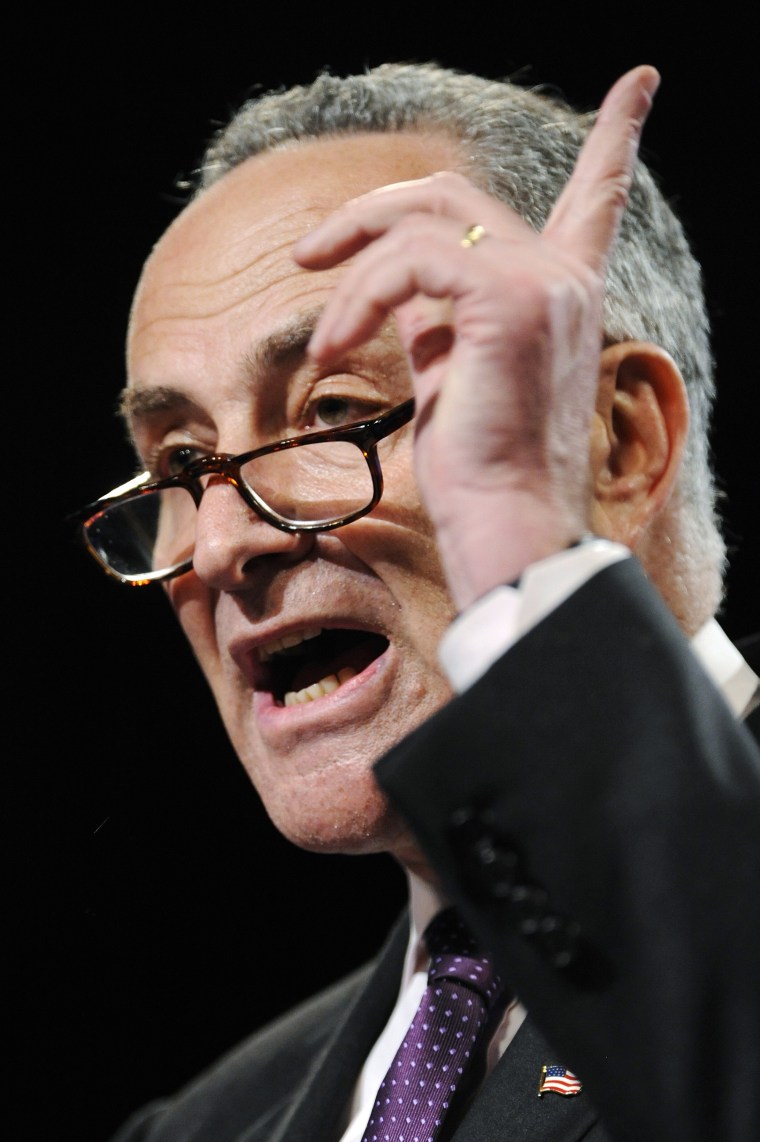A Supreme Court ruling famously skewered by President Barack Obama at his State of the Union address may be heading to the legislative operating table.
With six high court justices seated in front of him in the House chamber in January, Obama said, "With all due deference to separation of powers, last week the Supreme Court reversed a century of law that, I believe, will open the floodgates for special interests, including foreign corporations, to spend without limit in our elections."
On Thursday, Democratic lawmakers were joined by a handful of Republicans to propose legislation to mitigate the effects of that decision, which was dubbed by one senator as “one of the worst” in the court’s history.
The court’s decision in "Citizens United v. Federal Election Commission" allows corporations and unions to spend unlimited funds on political campaigns. Many Republicans, as well as business organizations like the Chamber of Commerce, lauded the ruling as a victory for free speech, while critics believed it would grant special interests an outsized influence in elections.
Sen. Chuck Schumer, D-N.Y., is leading the legislative effort to limit the effects of the decision. He told reporters Tuesday that the ruling was "terrible, one of the worst decisions that has come along in the Supreme Court, I think in its history."
His proposed bill would require a CEO or other leadership figure of a corporation, union, or other covered organization to personally appear in political TV ads and state that he or she “approves this message,” just as candidates must do in their own electioneering materials.
It would also prohibit election spending by government contractors and by companies with more than 20 percent foreign ownership. Companies that have received taxpayer-funded government bailout money would also be banned from political spending.
Democrat Chris Van Hollen of Maryland and Republican Rep. Mike Castle of Delaware are proposing nearly identical legislation in the House.
During a press conference on the steps of the Supreme Court, Schumer vowed that his proposal will have bipartisan support, although he acknowledged that, as of now, no Senate Republican has come forward to co-sponsor the legislation. He said of his colleagues across the aisle, "a good number have told us that they are very favorably disposed to the legislation."
Senate Republican Leader Mitch McConnell criticized the proposal Thursday, saying it would limit free speech. "An effort to disregard the First Amendment and defy the Supreme Court in order to limit the speech of those who may disagree with you is an effort that has no place in this country,” he said.
But Schumer argues that the campaign finance proposal, "levels the playing field so special interests do not drown out the voice of the average voter."
He said the goal is, "to enact this measure in time to limit fallout from the court's decisions on the 2010 elections." He hopes to have the measure on the Senate floor before July 4th.
